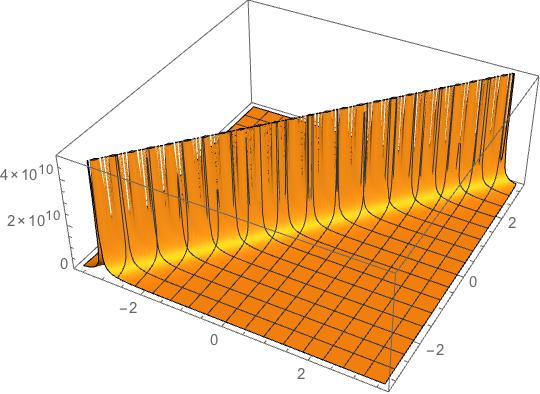I am trying to solve this expression in Mathematica with the function NIntegrate:
NIntegrate[(Abs[Subscript[δ, 1]-0.0675-Subscript[δ, 2]]EllipticE[-((4*0.1516*
0.1516)/(Subscript[δ, 1]-0.0675-Subscript[δ, 2])^2)])/(7.2*6.3*2π^2*
8.85418782*10^-12*((Subscript[δ, 1]-0.0675-Subscript[δ, 2])^2+(0.3032)^2)
Sqrt[(Subscript[δ, 1]-0.0675-Subscript[δ, 2])^2]),{Subscript[δ, 1],
-3.6,3.6},{Subscript[δ, 2],-3.15,3.15}]
However, when I try to solve it Mathematica first gives me this error:
NIntegrate::slwcon:
Numerical integration converging too slowly; suspect one of the following: singularity, value of the integration is 0, highly oscillatory integrand, or WorkingPrecision too small.
And then this one:
NIntegrate::eincr:
The global error of the strategy GlobalAdaptive has increased more than 10000 times. The global error is expected to decrease monotonically after a number of integrand evaluations. Suspect one of the following: the working precision is insufficient for the specified precision goal; the integrand is highly oscillatory or it is not a (piecewise) smooth function; or the true value of the integral is 0. Increasing the value of the GlobalAdaptive option MaxErrorIncreases might lead to a convergent numerical integration. NIntegrate obtained 5.338400038656212
*^10 and 2.8453968527047453*^9 for the integral and error estimates.
What should I do to solve these errors? Also are these affecting the output of my expression?


4.47595*10^10$\endgroup$